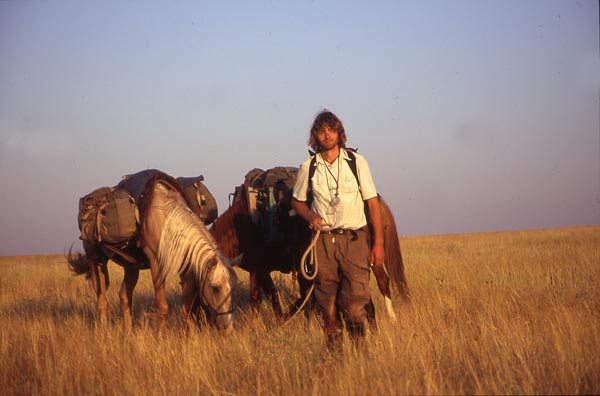 |
|
Tim Cope spent four years traveling from Mongolia to Hungary. Photo provided to China Daily |
Every four or five years a particularly harsh winter sweeps through the steppes of Mongolia and Kazakhstan.
Locally known as zud, the freezing weather kills livestock, lays fertile land to waste and makes simple survival a challenge.
It was Christmas Eve, and Tim Cope was riding right into one.
"I was heading into this area called the Starving Steppe in Kazakhstan, and it was dropping into the minus 30s, minus 40s. By this stage I had three horses, I was alone," Cope says.
Fearing the worst, he pushed his horses to reach the only settlement within hundreds of kilometers. But when he got there, far from the cozy agricultural village of nomads that he had envisaged, it was a grim and remote gold mining town. Nonetheless, Cope was glad to be taken to a small hut by "two shadowy figures", as he describes them.
"In the morning when I woke up I saw these two men, they probably hadn't washed in months and they said, 'don't worry Tim, sit back have a glass of vodka and a cup of tea,'" Cope says. "I went to look for food for the animals and there was none and I came back and they had caught a couple of street pigeons for Christmas dinner."
He pauses. "That was one of the times on the trip where I genuinely wanted an exit route."
That's just one of the moments that marked Cope's journey between 2004 and 2007 from Mongolia to Hungary, tracing the ancient trail of Genghis Khan. He traveled by horse, experiencing firsthand how some of the world's earliest empire builders traveled, how they survived and what they saw.
"The aim of the trip was to see the world through (a) nomad's eyes," he says. "And I realized that nomads see the world through the horses' eyes."
|
|
|
|
|
|
|
|
